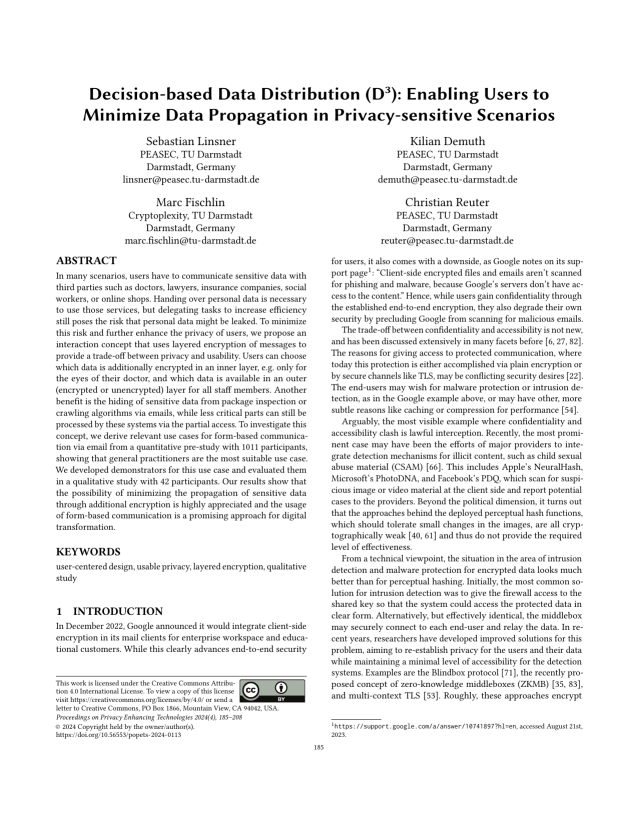Decision-based Data Distribution (D³): Enabling Users to Minimize Data Propagation in Privacy-sensitive Scenarios
Authors: Sebastian Linsner (PEASEC, TU Darmstadt), Kilian Demuth (PEASEC, TU Darmstadt), Marc Fischlin (Cryptoplexity, TU Darmstadt), Christian Reuter (PEASEC, TU Darmstadt)
Volume: 2024
Issue: 4
Pages: 185–208
DOI: https://doi.org/10.56553/popets-2024-0113
Abstract: In many scenarios, users have to communicate sensitive data with third parties such as doctors, lawyers, insurance companies, social workers, or online shops. Handing over personal data is necessary to use those services, but delegating tasks to increase efficiency still poses the risk that personal data might be leaked. To minimize this risk and further enhance the privacy of users, we propose an interaction concept that uses layered encryption of messages to provide a trade-off between privacy and usability. Users can choose which data is additionally encrypted in an inner layer, e.g. only for the eyes of their doctor, and which data is available in an outer (encrypted or unencrypted) layer for all staff members. Another benefit is the hiding of sensitive data from package inspection or crawling algorithms via emails, while less critical parts can still be processed by these systems via the partial access. To investigate this concept, we derive relevant use cases for form-based communication via email from a quantitative pre-study with 1011 participants, showing that general practitioners are the most suitable use case. We developed demonstrators for this use case and evaluated them in a qualitative study with 42 participants. Our results show that the possibility of minimizing the propagation of sensitive data through additional encryption is highly appreciated and the usage of form-based communication is a promising approach for digital transformation.
Keywords: user-centered design, usable privacy, layered encryption, qualitative study
Copyright in PoPETs articles are held by their authors. This article is published under a Creative Commons Attribution 4.0 license.

